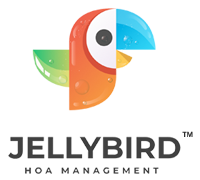When you first became a board member, you likely felt a sense of purpose and a great passion to help your community be its best.
Being a board member is incredibly rewarding. That can be especially true when you self-manage: having so much influence in the daily affairs of your HOA can feel very satisfying. Conversely, there are big advantages to using a management company, too. When you use a third party to handle most of the smaller aspects, you have more energy to focus on the more important aspects of HOA management. Additionally, utilizing a management company gives you more time to devote to other pursuits you feel passionate about.
Choosing whether to self-manage your HOA or hire a management company is a decision many boards wrestle with. There are advantages to both options.
But – what exactly does it mean to self-manage, and how might it be better than using a management company? More importantly, is it possible to find a middle ground that combines the best of both worlds? We at JellyBird think so!
What is a self-managed HOA?
A self-managed HOA is an HOA run entirely by the association’s Board of Directors. The board manages without any help from an association manager or a management company.
Duties for self-managed boards include handling all day-to-day operations (financial accounting, communication, site management, ACC review, etc.). These boards also handle the maintenance of the community (managing vendor contracts and relationships, auditing amenity areas, etc.). Self-managed boards also handle the customer service piece (dealing with homeowners calls, requests, managing conflict between neighbors, etc.) of HOA management.
What is an HOA management company?
Put simply, an HOA management company assists an HOA’s Board of Directors by handling all day-to-day operations of the HOA. A management company will also handle the maintenance of the community, the customer service piece of HOA management, and provide legal advice to their associations.
When employing an HOA management company, the association’s board is still in charge of the HOA and makes all the final decisions regarding its management. The role of the management company is to do all the heavy lifting and take the minutiae off the board’s shoulders.
What are the benefits of being self-managed?
While there is a lot of work involved in self-managing your HOA, it’s still a popular choice for HOAs. It’s estimated that 30-40% of all HOAs are self-managed by their boards in the state of Texas.
Proponents of self-managing tout the following benefits:
Self-managing your association saves money. Professional management services make up the bulk of many HOAs’ budgets. Many boards see handling the association’s affairs themselves as a way to save their fellow homeowners an assessment increase.
Self-managed HOAs enjoy complete discretion over every aspect of their HOA. Associations who utilize a management company typically keep only a bird’s-eye view over their community. Self-managed boards are involved at all levels of the management process.
Boards who self-manage typically enjoy a closer relationship with their homeowners. Why? Because boards who handle the association’s daily tasks have many opportunities to interact with homeowners. Through constant contact, board members become more attuned to the membership’s needs. Management companies often lack such a close, personal relationship with homeowners in the associations they manage.
What are the advantages of utilizing a management company?
While self-managing a community can be very rewarding, most HOAs ultimately decide to outsource most of an HOA’s tasks to a management company.
Advocates for using management companies say they enjoy the following benefits:
Management companies provide an additional layer of legal protection. HOA law can be complex, varies from state to state, and typically changes regularly. For these reasons, it’s not always obvious when you’re in violation of civil code.
Board members who self-manage must stay abreast of the legal code and any coming changes. A reputable HOA management company can take the strain off board members. Getting the right legal counsel ensures the HOA’s policies and procedures are in accordance with the expectations outlined in your state’s legislature.
Management companies provide consistent management and record keeping. Board members can call on experts to do all the financial management, customer service, site management, insurance, and legal work. Many board members find outsourcing their daily tasks appealing.
Working with a management company gives board members their time back. The amount of time and work involved in self-managing can come close to a full-time job. This is true even if you and your fellow board members are splitting tasks evenly.
Utilizing a management company can give board members the time they need to both enjoy life and focus on only the most important elements of HOA management.
A Middle-of-the-Road Approach
Considering the myriad of benefits that come from both self-managing and using a management company, we recommend using a hybrid approach if your association meets the following criteria:
- Your community has 50-250 single family homes.
- You have a well-experienced, but busy, board.
Not every HOA needs a full-service HOA management company. There are some who specialize in offering specific services, like financial management.
JellyBird is the ideal choice for boards who want to strike a balance between a full-service management company and self-management.
We provide the muscle for the more time-consuming aspects of HOA management: administrative tasks, financial management, and billing.
As an added bonus, JellyBird also offers homeowners self-service tools and an app so they can handle their concerns more easily without a board member’s help.
Best of all, with JellyBird, boards can enjoy a cost-effective solution that still allows them to remain the face of the association.
We hope this article has clarified the difference between a self-managed HOA and HOA management company and shown you how a middle ground approach may be right for you.
If we can help your HOA run more smoothly, let us know here.

